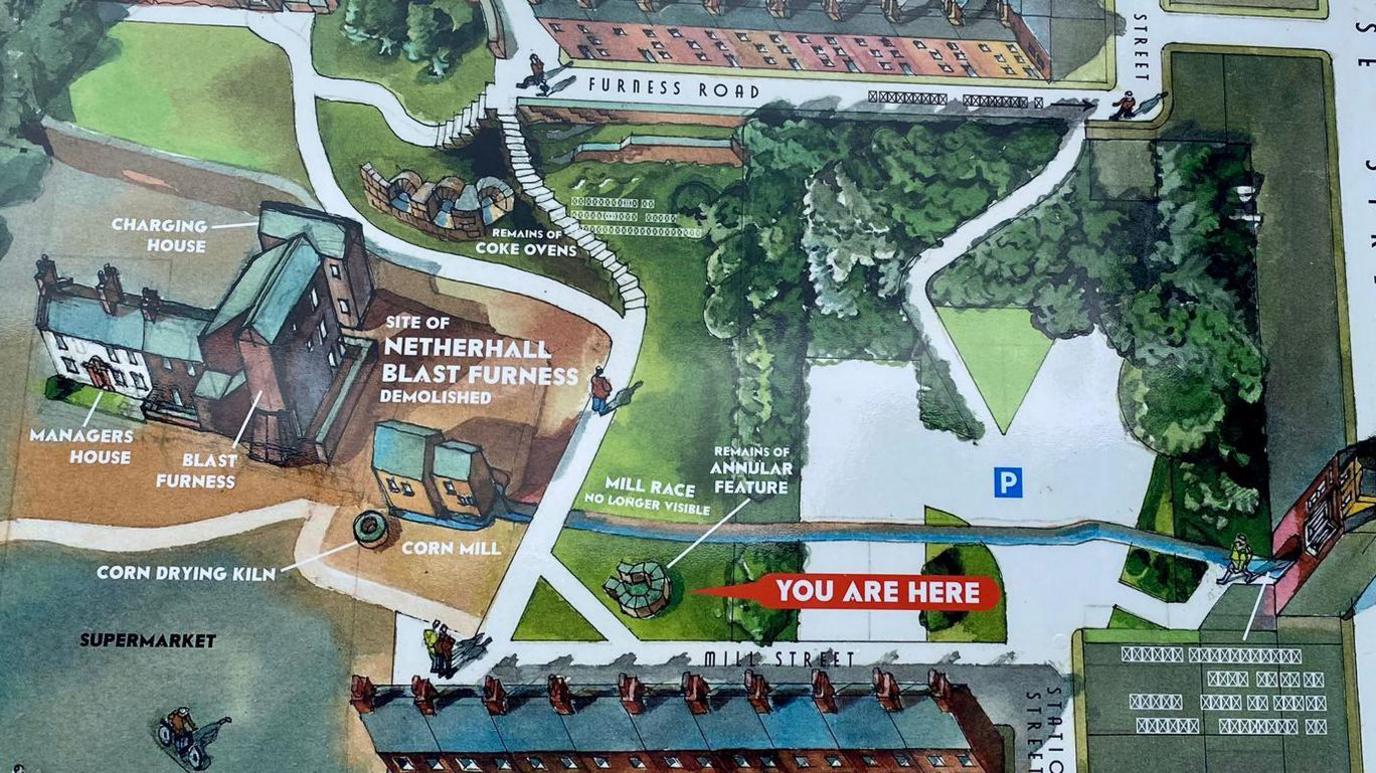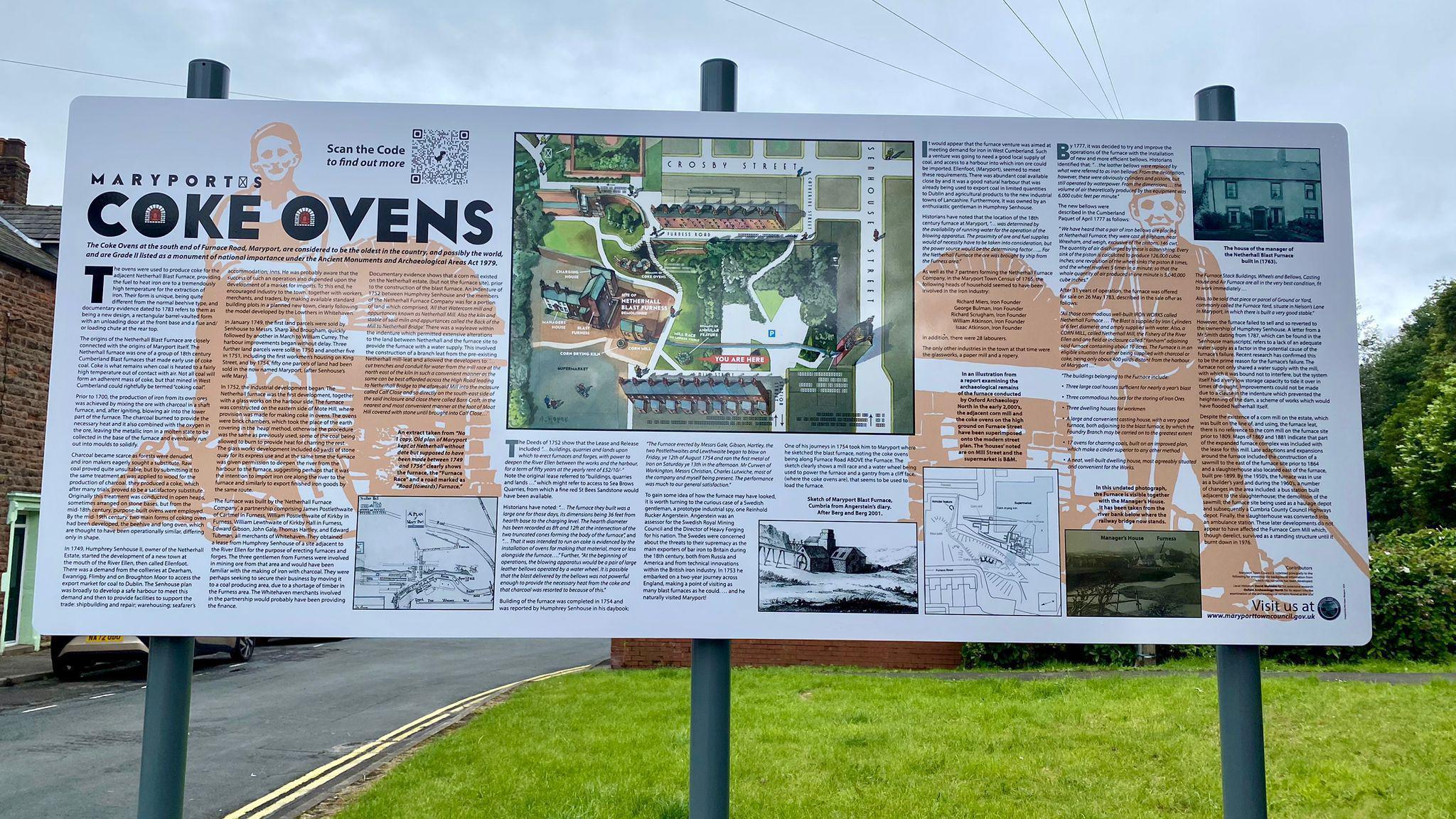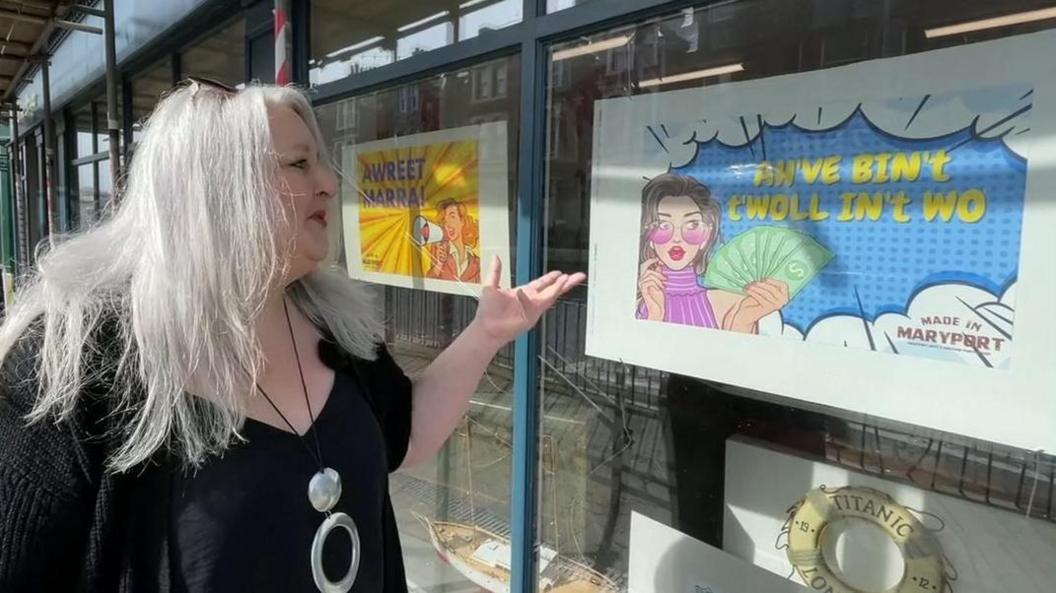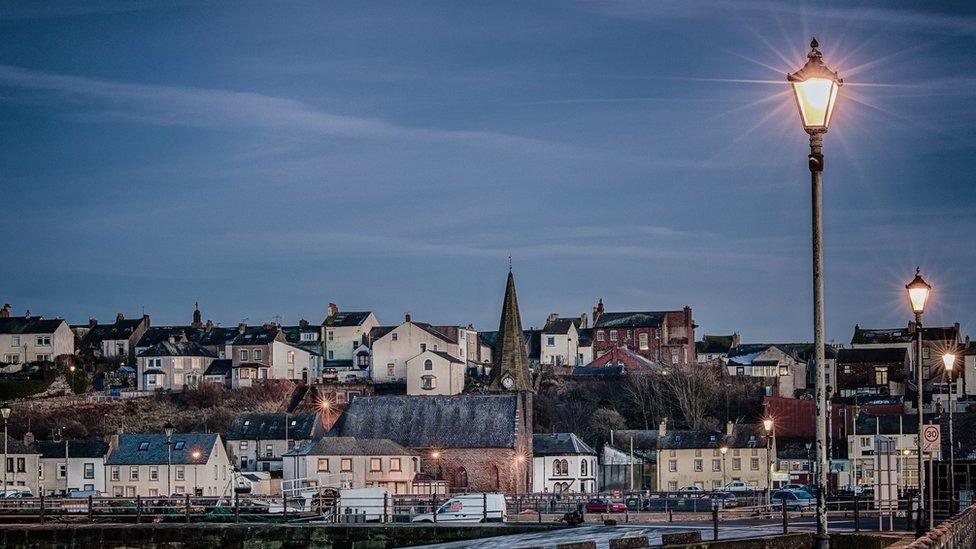Historic coke ovens typo a 'humorous' talking point

The sign incorrectly points to "Netherhall blast furness" rather than furnace
- Published
A typo on a sign intended to celebrate a town's industrial heritage has proved an attraction in itself.
Maryport Town Council recently unveiled new signs recognising the area's coke ovens, which are believed to be the oldest in the world.
But eagle-eyed residents spotted they point to "Netherhall blast furness", instead of the correct spelling of furnace.
Officials hoped the typo would be "a humorous talking point" and lead to more people using the information boards.
"The council will not be replacing the boards as it would be too costly," a spokeswoman said.
"Hopefully it will be a humorous talking point which will let more people know about the information boards, rather than a negative."
The word "Furness" appears in the name of many towns across Cumbria, including Askam-in-Furness, Kirkby-in-Furness, Dalton-in-Furness and Barrow-in-Furness.
It is believed it derives from the Old Norse language and refers to the rump-shaped headland of the Furness peninsula in the south of the county.

The board is at the southern end of Mill Street car park
Information published by Maryport Town Council said the coke ovens at Furnace Road in Maryport were considered to be the oldest in the country and "possibly the world".
"Their form is unique, being quite different from the normal beehive type, and documentary evidence dated to 1783 refers to them as being a new design," they said.
It is believed the ovens were built between 1754 and 1783.
The site includes the buried remains of a bank of six mid-18th Century coke ovens, which were used to produce coke for the nearby Netherhall blast furnace.
The sign detailing their history is located at the southern end of Mill Street Car Park
Follow BBC Cumbria on X (formerly Twitter), external, Facebook, external and Instagram, external. Send your story ideas to northeastandcumbria@bbc.co.uk.
Related topics
More stories from BBC North East and Cumbria
- Published13 April 2024

- Published27 September 2022
